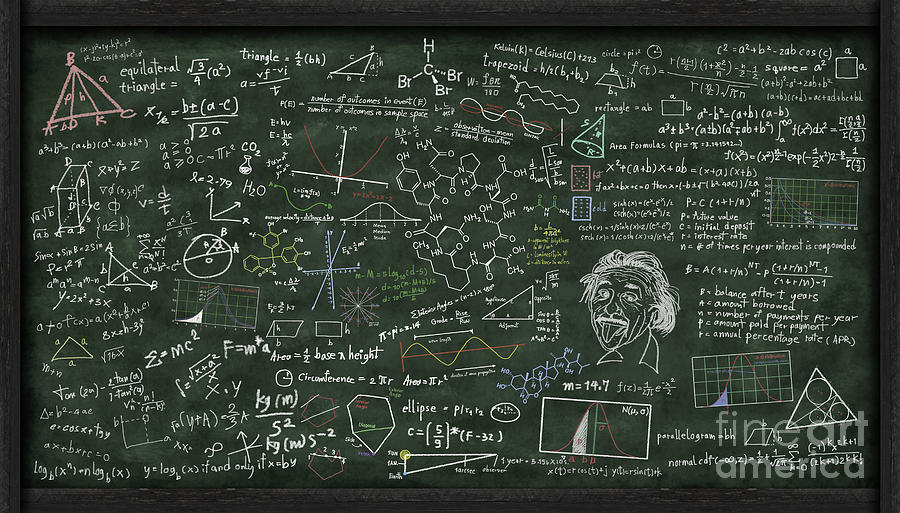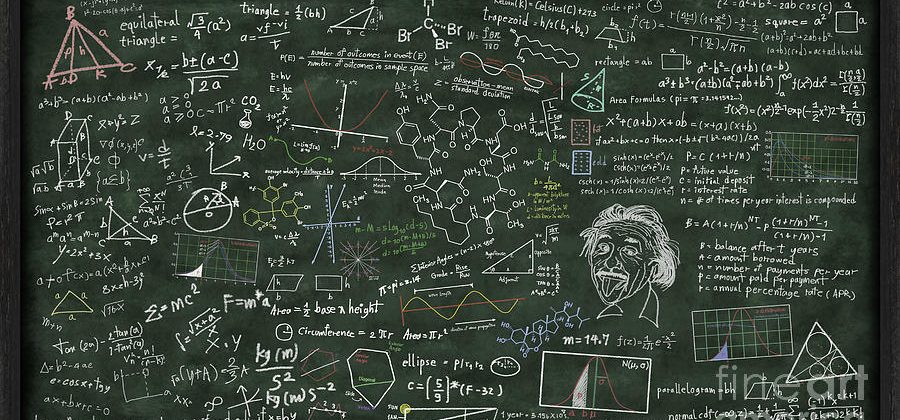
We have translated this older review from Wildcat (2005/6) of a book by Michael Heinrich, as a contribution to the general discussion on ‘value’ and Marx’s critique of capital. Previous thoughts on a recent talk by Heinrich can be found here and a more substantial article on Krisis and ‘value critique’ here.
Marx is ‘in’ again. The list of new publications on Marxist theory is more extensive than it has been for a long time. The new interest in Marx is accompanied by a turn of the left towards realpolitik, for which the existence of the Left Party and the advances also from the ranks of the ‘radical left’ to that party are clear evidence. Marx, however, was not a theorist of the bourgeois state or of participation in it. He does not offer a theory of capitalist society that could simply be used for reformist realpolitik, but a theory of conflict, of struggle, a theory of crisis and revolution. This Marx is of no use for the new reformism; it needs a Marx who is freed from all notions of insoluble contradictions – antagonisms; a Marx who does not look too closely at the real relations of production and thus exploitation; a Marx who is deprived of the explosive power that emerges with the realisation that the fundamental contradiction around the expropriation of labour is at the centre of capitalist valorisation.
Michael Heinrich’s ‘Critique of Political Economy’
Without proposing that we should place our hope in the state, Michael Heinrich’s book ‘Critique of Political Economy’ provides an introduction to Marx’s work, more specifically to Capital, that meets precisely these conditions. On the positive side, Heinrich presents a pleasantly readable and comprehensible treatise in which he takes great pains to keep the various levels of analysis separate and does not get bogged down in details. In this strength, however, unfortunately also lies the book’s weakness. Heinrich presents capitalist valorisation as a logical process to be analysed mathematically.
While Marx describes the capitalist exploitation process as a struggle relation between ‘capital and living labor’, Heinrich’s perspective treats this struggle relation, as well as the whole real production process in general, as marginal. Instead, he depicts an exchange society whose essential relations can be explained by means of fractional arithmetic and exchange of equivalents. Heinrich’s formulation that Marx tried to, “show how capital works”, corresponds to this. In this way, he degrades Marx to the ‘better economist’, despite Heinrich’s own proclamations that he doesn’t want Marx to be seen that way. In his attempt to discuss Marx’s errors and mistakes, he disposes of Marx’s theoretical efforts that seem illogical to him, for example, to consider both the use-value and exchange-value sides of capital in the concept of organic composition. This does not happen by chance. In Heinrich’s account, there is no use value side of capital at all; he does not consider the production process qualitatively. This is also why capital appears to him as a potentially infinite and not necessarily crisis-ridden process of production and reproduction, of supply and demand, of (exchange) value and circulation of the same.
Value as Substance or Relationship of Validation (Geltungsverhaeltnis)
Heinrich’s book breaks into an area, which, up to now, had been dominated by the Krisis group. It is therefore important to him to criticise their view that treats value predominantly as a substance. Above all, Heinrich rightly criticises the idea that value can be attributed to an individual commodity or represents the labor time necessary to produce this or that individual commodity, because this ‘substantialist’ perspective often obscures the fact that value is the expression of a social relationship. In value, it is not simply manifested that ‘human labour’ is materialised in things, but that this labour was performed within certain social relations as wage labour – whose own productivity and power appears and confronts it as the productivity of capital and value. Michael Heinrich misses this point. He fails to proceed beyond the (correct) statement that the value of a commodity can only be grasped in relation to the totality of commodities, insofar as the labour objectified in the commodity is only validated by the total of social labor.
In order to argue sharply against this form of substantialism, Heinrich allows value to flash up briefly only at the moment of exchange: before that, it is somehow ‘there’, but it cannot be determined; the magnitude of value shows up only in the successful exchange, i.e. in the sale of the commodity, when it becomes clear how much of the objectified labor is considered socially necessary. Heinrich gets lost in the other extreme: value is a pure relation of validation (Geltungsverhaeltnis), which can only show itself in a satisfied demand for the commodity.
It is true that value is real only for a brief moment on the level of exchange. But it cannot be understood or grasped on this level, but only within the circulation of capital. Marx writes: “Those who regard the gaining by value of independent existence as a mere abstraction forget that the movement of industrial capital is this abstraction in actu.” (Capital Volume II, Chapter 4).
According to Marx, it is in the production process that the difference between use-value and value “actively” confronts us. “It is no longer made by us, but is a feature of the production process itself.” (Results of the Direct Production Process, Capitalist Production as the Production of Surplus Value)
This also means that the determination of value prior to the analysis of the production process is a mental reflection that we make.
In the description of the production process, Heinrich then himself resorts to a substantialist image – and he has to: the value of the machinery transfers itself to the commodities produced with it. How one could think of such a movement of a pure relation of validation [devoid of social context and a specific form of social labour] is difficult to comprehend.
Abstract labour
Heinrich discusses the concept of abstract labour at length. He understands it as Sohn-Rethel’s ‘real abstraction’. He argues that labour becomes abstract only through exchange: namely, in the consummation of exchange, the exchangers abstract from the diversity of their labour. This argumentation fits Heinrich’s attempt to place the exchange relation or the exchange process at the heart of his value analysis. ‘Abstract labor’ is not the property of a labour that is particularly monotonous and alienated, but its’ abstractness arises only from the exchange of products. If labour were abstract only in this sense, however, why should we continue to speak, with Marx, of the ‘dual character’ that labour assumes under capitalism?
In his effort to criticise value-substantialist positions, Heinrich then abstracts from reality altogether at this point, just as if he could dissect capitalism freed from all historical and local contingencies and impurities. In his effort to explain that by ‘abstract’ he does not mean ‘alienated, boring, under the despotism of the master’, he overlooks the fact that labour in capitalism is much more immediately ‘abstract’: it is wage labor. And in this sense, of being labour for wages, all labour becomes ‘abstract’ in different ways, while the producers themselves remain largely indifferent towards their products. But this process of abstraction, the subjection of labor-power to exchange-value, is closely connected with a despotic and violent mode of production, in the course of which the producers are continually dispossessed of the foundations and material basis of their own lives.
Abstraction is not explained by exchange, but the other way around. We can only really think about value – that is, the abstract side of capitalist labour – on the basis of the general inter-connectedness and interdependence of labour in capitalism, within which individual labour only counts as part of the total social labour (or as Marx put it, as “mere organs of labour”). And only against this background of the “general alienation [Entaeusserung] of labour,” does ‘exchange’ generalise. The “general alienation of labor” – wage labor – is the precondition for value. The abstract character of labour arises from the organisation of the production process, which enforces all-sided exchange, but not from exchange as such.
This question is central: do we live in an exchange society, whose defining characteristic is the general exchange of equivalents, or in a class society, whose essence is to constantly separate producers from the means of production, to deprive them of control over the reproduction of their material conditions, and thus to continually force them to work or starve? What is at the centre of this society? The struggle, the confrontation, or the equal and just exchange?
Class struggle or wage struggle
Heinrich’s whole presentation amounts to a notion of capital that could actually work. There is equivalent exchange, there is no tendency of the rate of profit to fall, there is somehow the harmony of the (exchange) ratio equations. In his book, class struggle, to which he devotes a whole chapter from the second edition on, occurs as something external to capital. Heinrich grasps class struggle only in the capitalist fetish forms, which for their part already represent the mediation of the conflict: for Heinrich, class struggle is wage struggle, the class relation is the wage relation.
Things like machine storming, sabotage, slacking and slow working, factory occupations, struggles for job control, wildcat strikes, or even everyday petty warfare are completely left out of such considerations – again in contrast to Marx, who not only in Capital repeatedly refers to everyday resistance against being squeezed and exploited at work, who writes about insubordination, machine storming, etc.
Heinrich and the vast majority of the German ‘radical left’ overlook two points:
* If the class relation is conceived as a social relation in which most people are forcibly deprived of the means of their own reproduction and thus of control over their own lives, class struggle is the struggle against this deprivation, against separation from the means of reproduction and for control in the production process. This includes not only the struggle for more wages, but the struggle against the extortion of labour, the struggle against labour, the struggle against the dictates of the bosses and the machines, the struggle against the commodification of all means of life (rent strikes, occupations, appropriation movements). The struggle against labour poses completely different questions than the struggle for more wages, it poses questions for a different mode of production, for a different society….
* But also within the struggle over wages, those who struggle enter a process that – at least potentially – poses questions about the how and why of capitalist mode of production; those who struggle are forced to organise themselves without the control of the masters, they discover that it is they themselves who can control production. The explosive power of a struggle for wages or against layoffs may not lie so much in the goal of the struggle achieved or not achieved, but in the course of it, a process in which the fetish forms of capital weaken precisely because these people are in the process of organising their lives themselves. But if class struggle is imposed on capitalist valorisation only as an external condition of existence and exists only as a struggle for distribution, then it can also be negotiated and regulated. The main problem of capitalist exploitation is then whether the goods produced can be sold; and against the background of a functioning process of exploitation, the wage demands of the workers can somehow be dealt with.
But if the class struggle is conceived as something that is indigenous to the production process itself, if everyday insubordination, refusal, sabotage are brought into view, then it becomes clear that the class struggle shapes the production process. Capitalist technology, the organisation of production, and machinery are themselves forms of struggle against the insubordination and refusal of labor. The technical development of capital is directed first and foremost against the workers, depriving them of control over production, expropriating them from their work and their lives. This is the essential condition of capital’s existence and the place where this happens is the factory.
Competition, machinery, service
Because Heinrich treats capital only as a system of individual capitals and exchange relations, he cannot see the driving force of technological development in capital’s need for continuous subordination of labour power. Therefore, for him, it is the hunger of the individual capitalist for ‘more’, for extra profit – at the penalty of ruin – that drives capital forward. For Heinrich, competition is at the heart of capitalist development, something that need not be surprising at all, for this understanding is common sense, it is the citizen’s awareness of his world, in which he is first and foremost in a competitive relationship with everyone else.
Marx, on the other hand, analyses capital as a social relation, as a relation of production in which a class of dispossessed is forced to produce for the needs of capital. One necessity of capital is the constant devaluation of labor, the production of ‘relative surplus value’, achieved through the technological intensification of the labor process. Competition, the relationship of individual capitals, is not at all relevant for this at first; rather, it is only explained by the course of this process.
“While it is not our intention here to consider the way in which the immanent laws of capitalist production manifest themselves in the external movement of the individual capitals, assert themselves as the coercive laws of competition, and therefore enter into the consciousness of the individual capitalist as the motives which drive him forward, this much is clear: a scientific analysis of competition is possible only if we can grasp the inner nature of capital.” (Capital, Volume 1, Penguin Classics, p.433)
Heinrich makes it too easy for himself by starting from the everyday consciousness of the individual capitalist. Because the competition, which is perceived as so threatening by this individual consciousness, is ‘only’ the “manifestation” of a – according to Marx in Capital – “general and necessary” tendency to lower the value of labour power. But if this is so, then competition itself cannot explain this tendency.
Because Heinrich only allows the validity of the individual striving of individual capital for extra profit, he is also completely indifferent to the way in which capitalist production is organised (or is it the other way around?). Because it escapes him that the expansion of relative surplus value is a “general and necessary tendency” of capital, he also does not understand why industrial production, why the factory is at the centre of capitalist development. Without an analysis of the production process and without an understanding of the class struggle within this process, value is just the social relation of validation (gesellschaftliche Geltungsverhaeltnis) in which individual single labours relate to each other.
This applies to industrial labor as well as to service labor. Full stop. Heinrich, for example, believes he can argue against Hardt/Negri by pointing out that with the transition from an “industrial to a service society” or from “material to immaterial production” nothing really changed on the level of value (p.42). But the crux of a “service society” would be quite different: how can the expansion of relative surplus value production be imagined in a service production? So far, this process has its home in the industrial sphere, in the factory, in the application of machinery on a large scale. Leaving aside the ideological and/or truth content of the assertion of a “service society”, the question would be: can capital as a class relation reproduce itself as a relation of domination at all if it was based primarily on service production ?
Conclusion
Heinrich’s ‘Critique of Political Economy’ fails to provide an introduction to Karl Marx’s critical thought. The sterile presentation, which strives to avoid confusing details, leaves out precisely the crucial point in Marx’s theory, namely to grasp capital as a social relation, as a relation of exploitation, as a class relation. Heinrich provides an introduction to Marxist value theory on a mathematical level without understanding the exploding contradiction of capital. He is like one of those English mechanics of whom Marx writes in a letter to Engels: “For mere mathematicians these questions are indifferent, but they become very important when it comes to proving the connection of human social relations with the development of these material modes of production.” (MW 30, P. 212)
Because capital appears to Heinrich as a harmonious all-sided exchange relation, he cannot criticise it from within at all. It is not because capital is the daily contradictory and maddening expropriation of our lives that Heinrich criticises it. He doesn’t criticise capitalism because there are intrinsic tendencies pushing toward its dissolution – tendencies which also express the possible emancipation of human beings from the relations that dominate them. No, Heinrich’s criticism is different: capitalism ruins everything, nature goes to the dogs, states instigate ever new wars. His justification for communism is a purely moral rejection of the destruction going on around him, a romantic reflex, but precisely nothing that could be identified as a tendency today, nothing that he could read from the development of the capital relation. This is in strange contradiction to his constantly repeated affirmation that capitalism cannot be criticised morally – but on the other hand it fits in with the so-called ‘anti-glob’ movements of the last decade…



